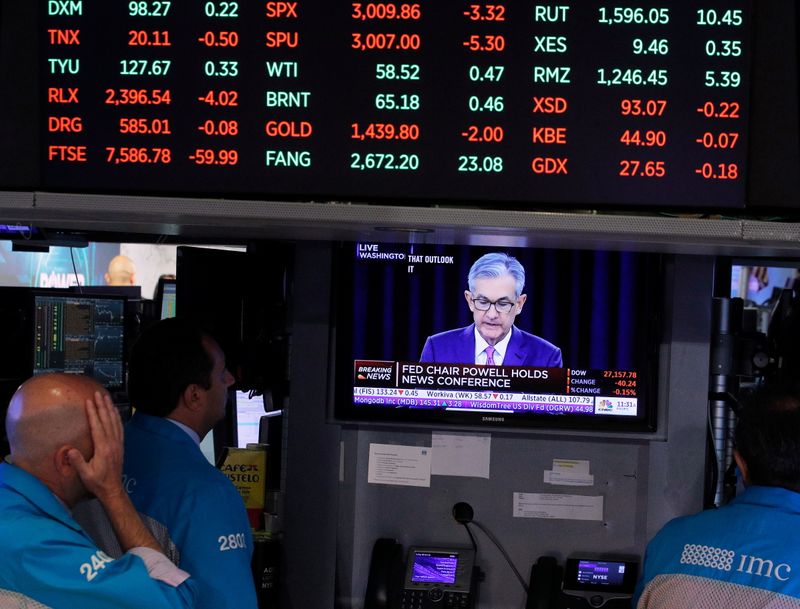By Pete Schroeder
WASHINGTON (Reuters) - Record-breaking Wall Street bank bond offerings in recent days are being driven by a combination of extraordinary market conditions and regulatory decisions that can be traced to the government's pandemic relief efforts, said analysts.
JPMorgan Chase (NYSE:JPM), Bank of America (NYSE:BAC), Goldman Sachs (NYSE:GS) and Morgan Stanley (NYSE:MS) have or are planning to issue a total of $40 billion in debt, according to media reports. JPMorgan's $13 billion April 15 bond sale was briefly an industry record until it was topped the next day by Bank of America's $15 billion offering.
While the banks did not provide details on why they are raising the debt, analysts said a confluence of monetary and regulatory factors are driving the unprecedented cash grab, underscoring the increasingly tricky balancing act for Wall Street lenders as the economy emerges from the pandemic slump.
That economic rebound driven by the vaccination roll-out and trillions of dollars of stimulus, combined with ultra-low interest rates, has made for excellent borrowing conditions on the heels of stellar first-quarter earnings.
After the U.S. Federal Reserve said in March that it would lift capital distribution curbs on banks that pass its June stress tests, many also want to have enough cash on hand to keep shareholders happy with increased stock buy backs.
"We are going to buy back a substantial amount ... as soon as we can," Bank of America Chief Executive Brian Moynihan told analysts during the bank's earnings call prior to the bond sale.
On Monday, Goldman announced its own plans to buy back some preferred stock.
GROWING DEPOSITS
But it's not all good news. While the fire-hose of government stimulus gushing through the economy flattered bank earnings, it has also reduced loan growth and caused deposits to surge. In turn, banks have had to park those deposits with the Federal Reserve and in safe-haven assets such as U.S. Treasuries.
"These deposits are growing like crazy, but loans are not and common equity is not, and that creates a serious problem for the banks," said Dick Bove, an analyst with Odeon Capital Group.
"I've never seen this happen before."
For some banks, those problems are regulatory. As of April 1, banks had to resume holding extra capital against Treasuries and Fed deposits after the central bank ended temporary pandemic relief that had allowed lenders to exclude those assets from a key capital calculation.
That "supplementary leverage ratio" (SLR) is an extra safeguard introduced following the decade-ago financial crisis that requires big banks to hold cash against assets regardless of their risk. With surging deposits, some banks may be looking to raise debt to ensure they operate comfortably within the ratio.
"It's quite likely that the debt issuance may have been partly driven by the expiration of the SLR relief," said Gennadiy Goldberg, senior rates strategist with TD Securities.
Executives with both Goldman and Bank of America told analysts on first-quarter earnings calls they still had room to operate before reaching the leverage ratio threshold.
Morgan Stanley's debt offering was not driven by regulatory constraints, according to a person familiar with the matter. The Fed declined to comment.
JPMorgan, for its part, issued the bonds in part to address regulatory constraints, according to one person familiar with the matter. On its earnings call, the bank's executives flagged that deposit growth had increased its leverage, prompting Chief Financial Officer Jennifer Piepszak to criticize the rules.
"Raising capital against deposits and/or turning away deposits are unnatural actions for banks, and cannot be good for the system in the long run."
